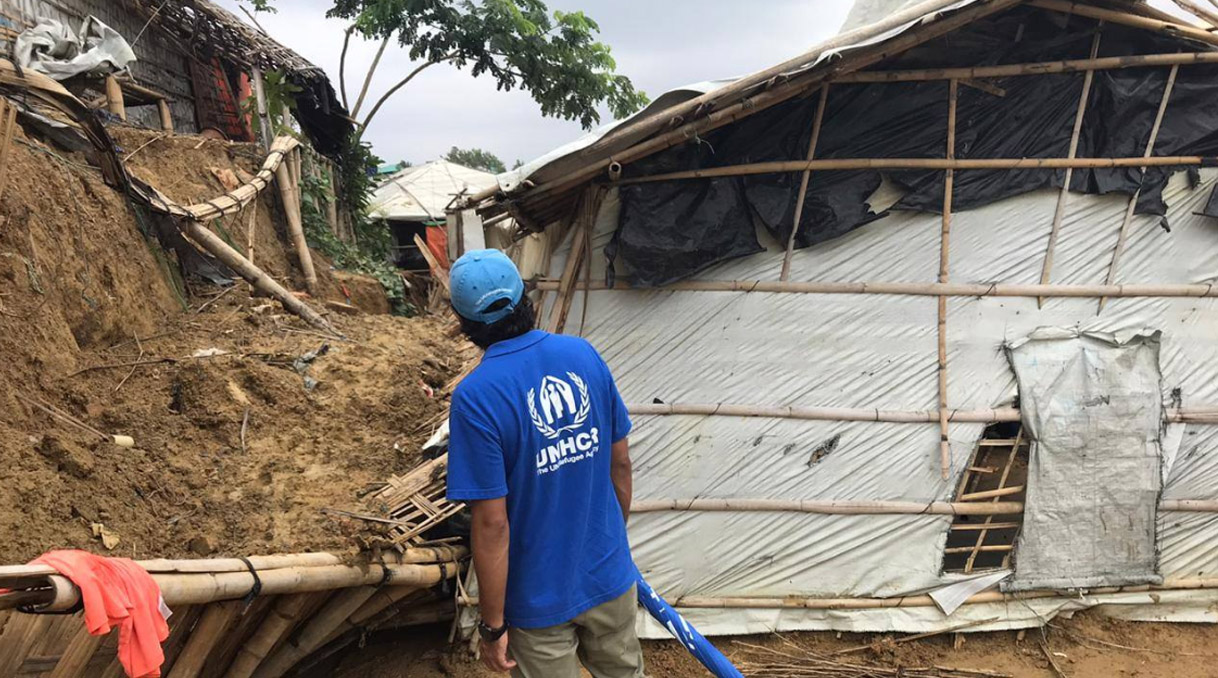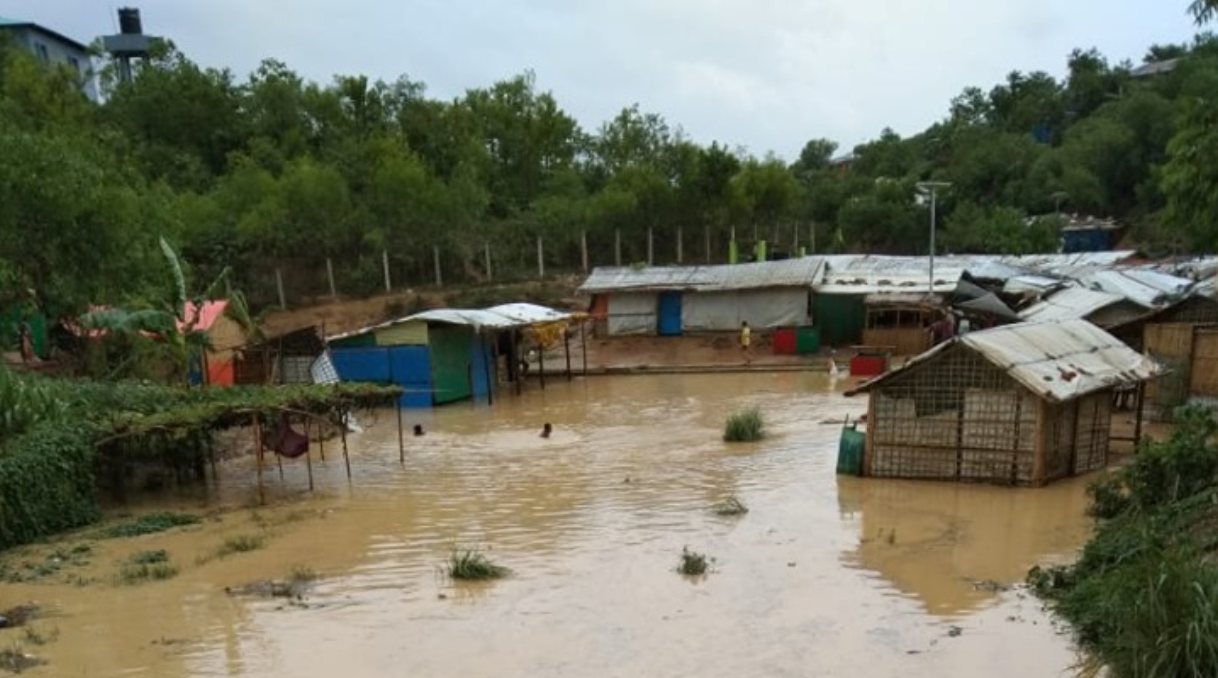Stay and Deliver in Bangladesh: Rohingya Refugees Face Double Threat
Cyclone Amphan is the latest emergency for more than 860,000 Rohingya refugees threatened by the ongoing monsoon and the spread of COVID-19.
UNHCR, the UN Refugee Agency, and partner organizations have further intensified its COVID-19 response in the Rohingya refugee camps in the Cox’s Bazar area of Bangladesh, following the first confirmed cases of coronavirus among the refugee population.
As countries around the world continue to fight the COVID-19 pandemic, the monsoon season risks worsening the already difficult situation of refugees in Bangladesh. Both host communities and refugees in Cox’s Bazar, with a population density one and a half times higher than New York City, are considered to be among the most at risk globally in this pandemic. The area is also seasonally prone to both landslides and flash flooding.
In support of the government-led public health efforts to curb the spread and impact of the pandemic, since March UNHCR and partners have carried out a range of preparedness and prevention measures. Health staff in all clinics within the camps have been oriented on Infection Prevention and Control (IPC), including the appropriate use of Personal Protective Equipment (PPE).

UNHCR and partners have also launched construction of isolation and treatment facilities, with the goal of ensuring the availability of 1,900 beds to serve both refugees and host communities in the District. Information-sharing has been expanded through a network of more than 2,000 community volunteers, religious leaders and humanitarian workers.
The humanitarian community is taking all preventive and precautionary measures to mitigate the risks of COVID-19 while also ensuring that critical activities continue, including health, nutrition, hygiene promotion, construction of health facilities and WASH infrastructures as well as key distributions such as food, LPG and hygiene kits.

An emergency on top of an emergency
While it is vital to prioritize public health-related preparations in the camps at this time, cyclone and monsoon preparedness activities must also continue. Cyclone Amphan has recently devastated hundreds of families who have lost hundreds of shelters. Refugees themselves are a critical part of the operation. They are the backbone of the response in terms of preparedness and information-sharing activities. UNHCR and its partners are moving families in safe shelters, mobilizing first responders, delivering life-saving supplies and providing immediate medical care.
In the midst of such a global public health crisis, it is clear that all of us can only be safe if we ensure that everyone is kept safe. COVID-19 does not discriminate. We must make every effort to ensure that the possible spread of the virus and the coming monsoon season do not exacerbate the already highly vulnerable situation of the Rohingya refugees in Bangladesh.
UNHCR is urging the international community to stand in solidarity with refugees and IDPs to avert a looming mix of natural and public health disaster.
Share on Facebook Share on Twitter


